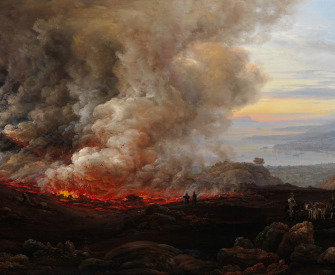Those who have been over to Johnstown and witnessed the operations that are going on at this writing, of trying to loosen an enormous mass of debris and get through it by the use of dynamite, every other means having failed, will be ready to accept the contrary conclusion and admit that water can do a great deal of mischief and pile up a great mass of earth, stones, trees, houses, railway locomotives, cars, human bodies and whatnot in a very few minutes, and make the pile very deep and the mass very solid if it only tries. If those dynamiters would cease their work, some future geologist might discover in that pile of debris another Neanderthal skull.
But this brings us to the law of the case. What is the responsibility of a corporation or person who collects on his land a vast body of water, and does not sufficiently restrain it as to prevent its being turned loose by means of an extraordinary freshet upon the unsuspecting inhabitants below? The general answer would be that the authors of such mischief are liable on the principle of negligence. That answer is good enough, if the judge will only turn them over to a common jury. In the hands of twelve good and honest men such a rule of law will answer every practical purpose. But unfortunately we have judges who think that on questions of ordinary care and questions of what is reasonable and unreasonable in practical life one legal scholar (although a poor one) knows more than twelve practical men in the jury box. So that the law tries to give an answer; and what answer has it given? The best answer that has ever yet been given was given in one of the best considered cases which ever went through the courts of England. That answer was given by Justice Blackburn in his judgment in the Court of Exchequer Chamber in the great case of Fletcher v. Bylands:
We think that the true rule of law is that the person who, for his own purposes, brings on his lands and collects and keeps there anything likely to do mischief if it escapes must keep it in at his peril, and if he does not do so is prima facie answerable for all the damage that is the natural consequence of its escape. He can excuse himself by showing that the escape was owing to the plaintiff’s default; or perhaps that the escape was the consequence of vis major, or the act of God.
This dictum was approved in the same case in the House of Lords, and must be accepted as the law of England upon this question. It has been, in terms, adopted by several American courts, though denied by some. It is good enough for the practical purpose of charging with damages a company of gentlemen who have maintained a vast reservoir of water behind a rotten dam, for the mere pleasure of using it for a fishing pond, to the peril of thousands of honest people dwelling in the valley below. It is enough that they are prima facie answerable. That takes the question to the jury. The jury will do the rest. They can be safely trusted to say whether or not it was the plaintiff’s default, that is the fault of some poor widow in Johnstown, whose husband and children were drowned while she was cast ashore and suffered to live. They can also be trusted to say whether it was in consequence of a vis major, or the act of God. A jury of Pennsylvania Lutherans, Reformed Dutch, Presbyterians, Methodists, Baptists, or Catholics will not take readily to the attempt to cast the responsibility of such a catastrophe from the shoulders of the fine, rich gentlemen who owned the fishpond and the rotten dam to the shoulders of God.
From an article in The American Law Review. The editors of this influential law journal—which had recently included Oliver Wendell Holmes—took up the “law of bursting reservoirs” shortly after the Johnstown flood in Pennsylvania. The South Fork dam held back the pleasure lake of the South Fork Fishing and Hunting Club, which counted as members Andrew Carnegie, Henry Frick, and Andrew Mellon. On May 31, 1889, the dam broke; more than two thousand people died in the ensuing flood. Bodies were found as far away as Cincinnati and as late as 1911. No lawsuit against the club was successful and no damages were ever paid.
Back to Issue


